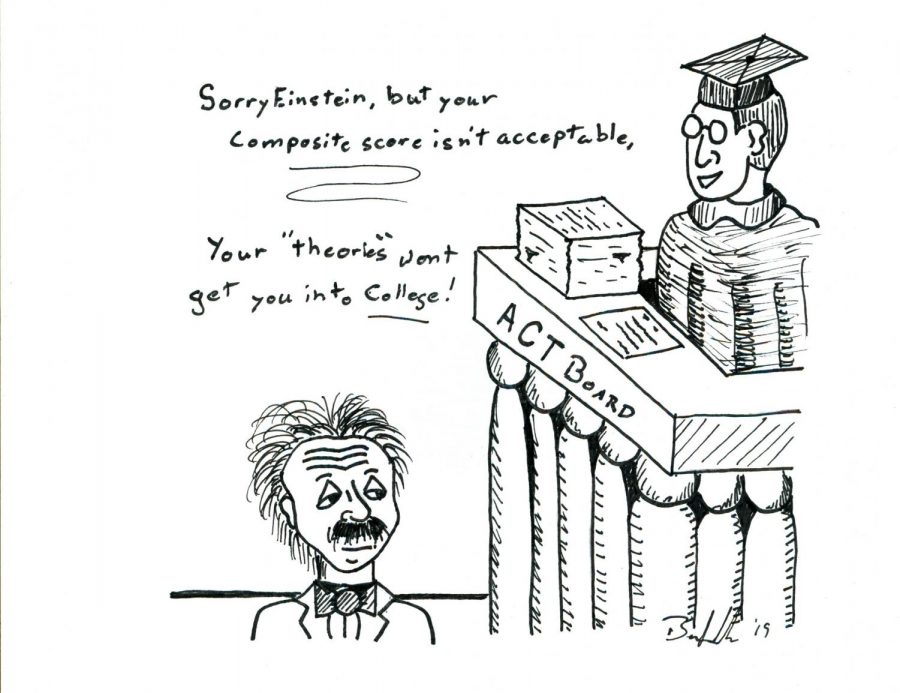Opinion: The ACT needs to be reformed
Most colleges and universities use the ACT as an entrance exam. The way college admission use it needs to be reformed.
October 19, 2018
Colleges and universities base most of their admission qualifications on scores from a standardized test, the ACT. Juniors and seniors take the ACT countless times, striving to optimize their scores. Students even start to wonder if the ACT should matter.
The ACT must reform to optimize the success of the modern student. Standardized testing is becoming less dependable for measuring intelligence and future success.
The ACT is antiquated. The roots of college admittance based upon standardized testing trace back to 1890, when Harvard President Charles William Eliot proposed eliminating universities’ conduction of individual testing. Due to a new culture of self-expression, modern students learn differently than students in the 1890’s. Schools are beginning to understand that their curriculums are not effective for all students, thus the reason for Montessori schools and websites such as Kahn Academy which tailor to students as individuals as all schools ought to. If the ACT wishes to optimize the success of the modern student, it must conform to the culture of self-expression, ultimately bringing individuality into the assessment process.
Standardized tests do not fully prepare students for future careers or assess a student’s potential future success. The ACT claims that it is dedicated to helping people achieve educational and workplace success, yet it does not assess social intelligence, a huge factor in the success of an individual. A student’s ability to engage in social interactions is often times what allows them to obtain and retain jobs. These social interactions, ranging from the job interview to interacting with coworkers, determine an individual’s success within a company. Modern technology has no limits, and with proper research the ACT will be able to devise a manner of assessing social intelligence.
The ACT does not reflect the character of a student. GPAs are how colleges ought to see the compatibility of a student to their institution. The development of a GPA over four years shows a student’s work ethic, ambition, and ability to balance their time and classes. Though the academic rigor of high schools differ, colleges are already learning as much as possible about individual schools, ranking them and applying their own weight to schools’ curriculums. As long as universities accept the ACT, the educational system will continue to teach the cookie cutter student. Therefore, universities must begin to utilize and value GPAs at a greater level. If this becomes common practice and the ACT reforms, universities will utilize ACT scores and GPAs with equality.
Though the ACT is appealing to colleges in many ways, a call for reform from students is inevitable. The ACT must allow for self-expression, assess social intelligence, and join together with GPAs in order to maximize the educational and workplace success of the modern student.








